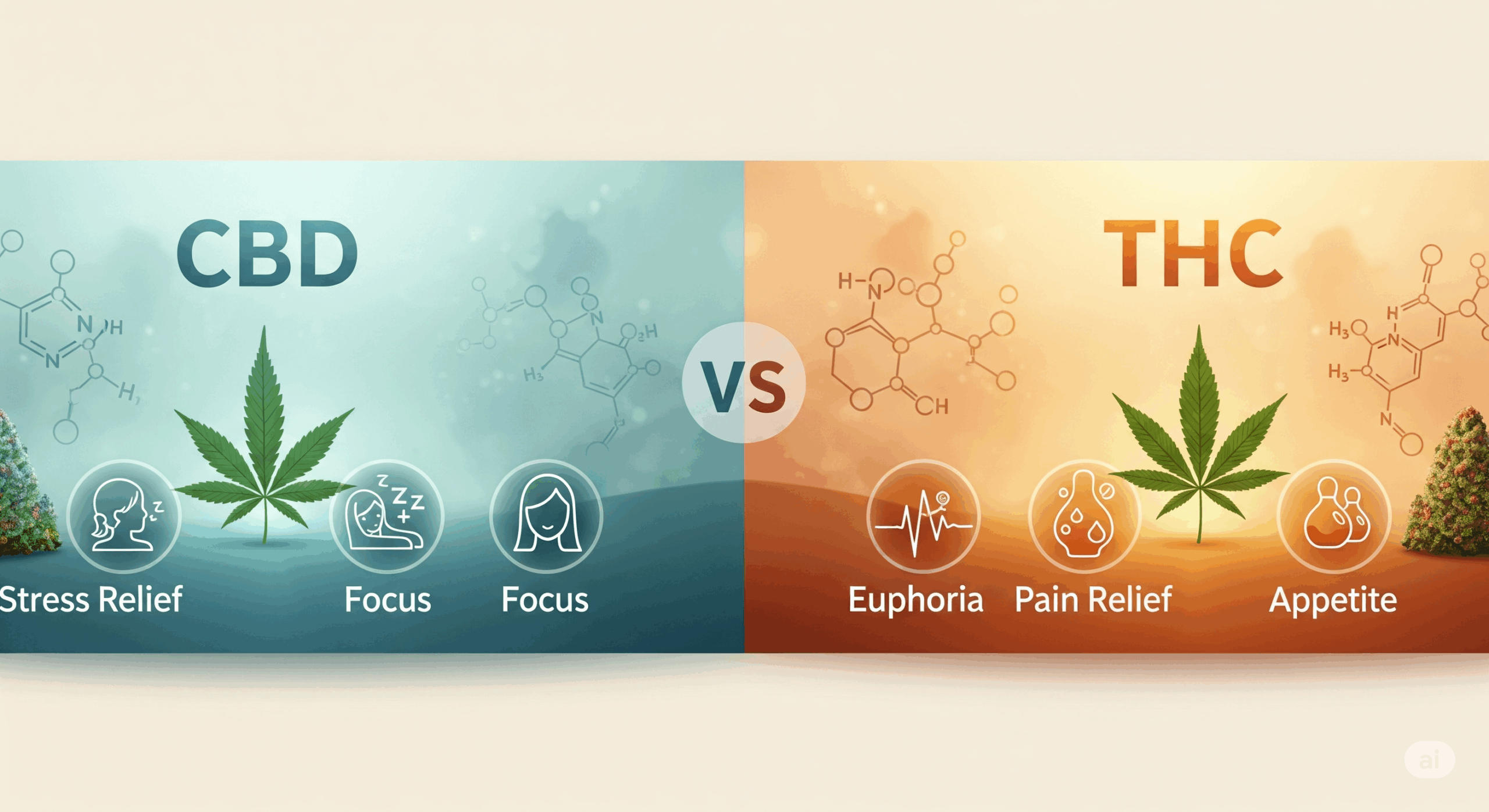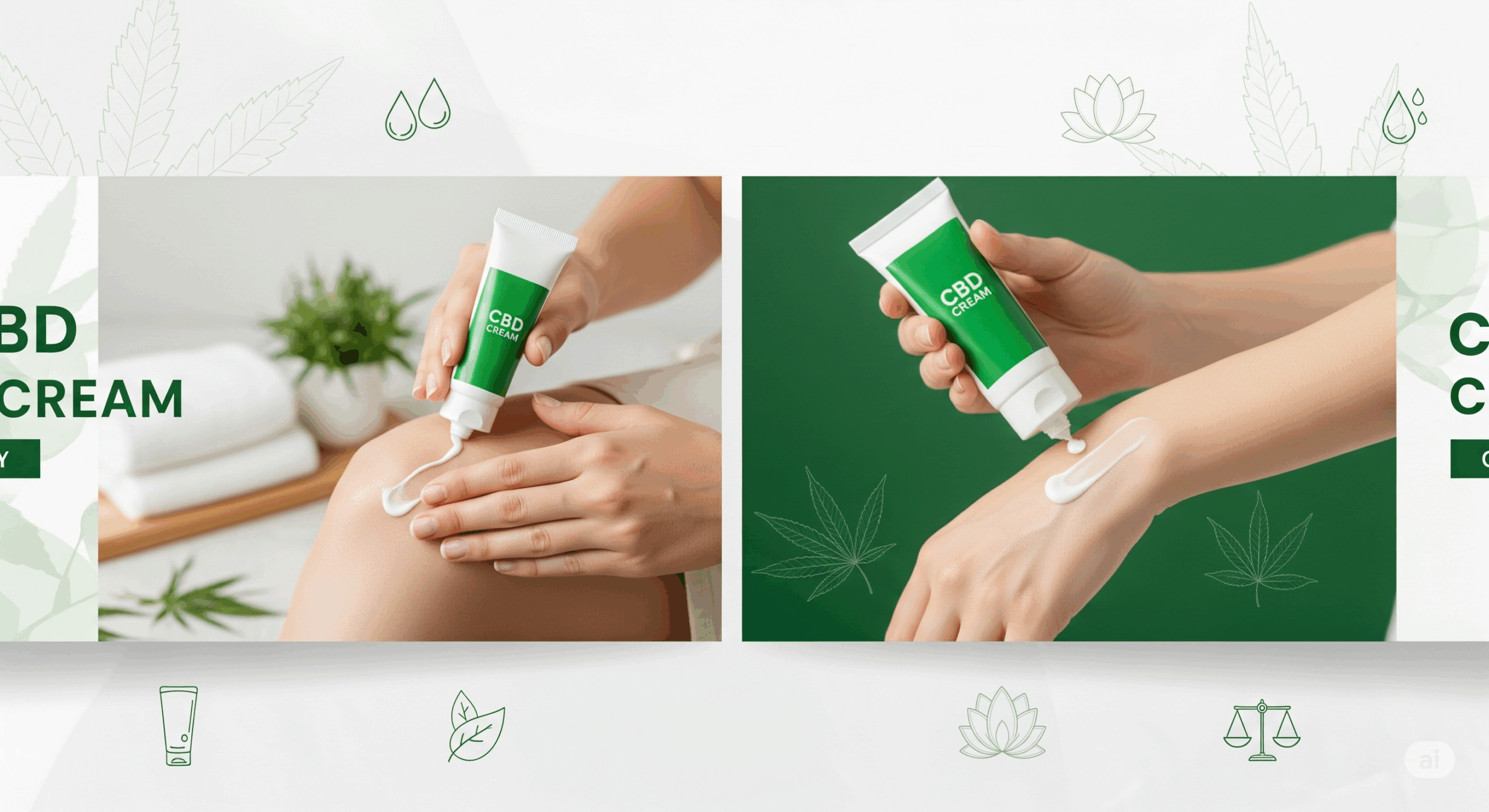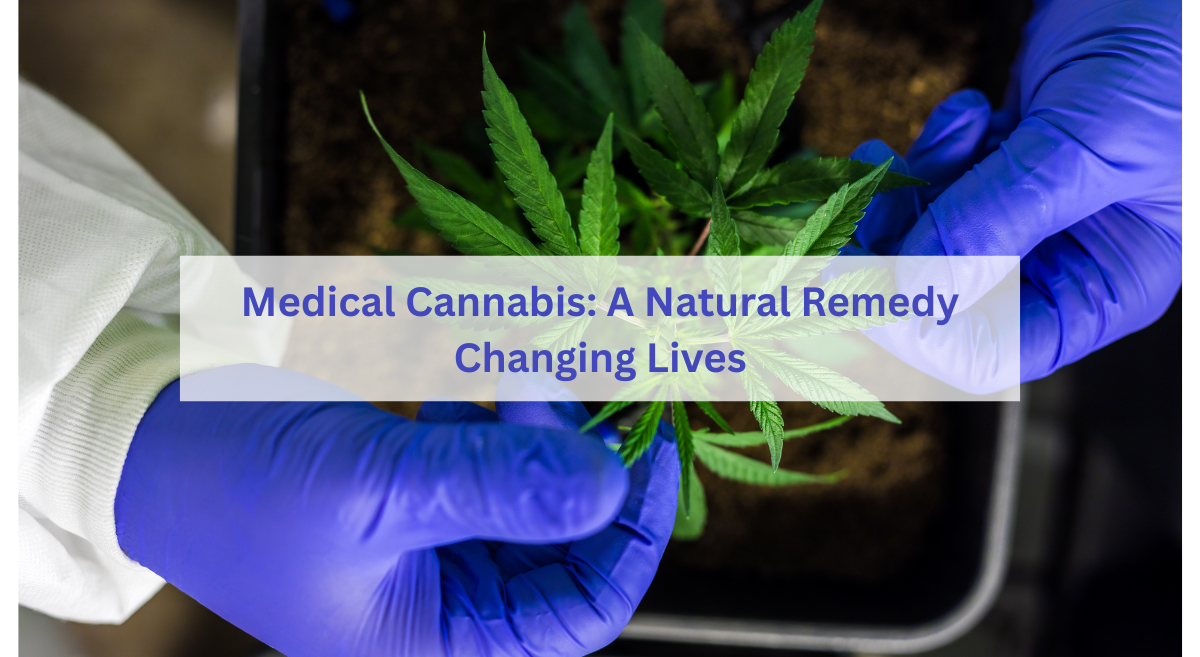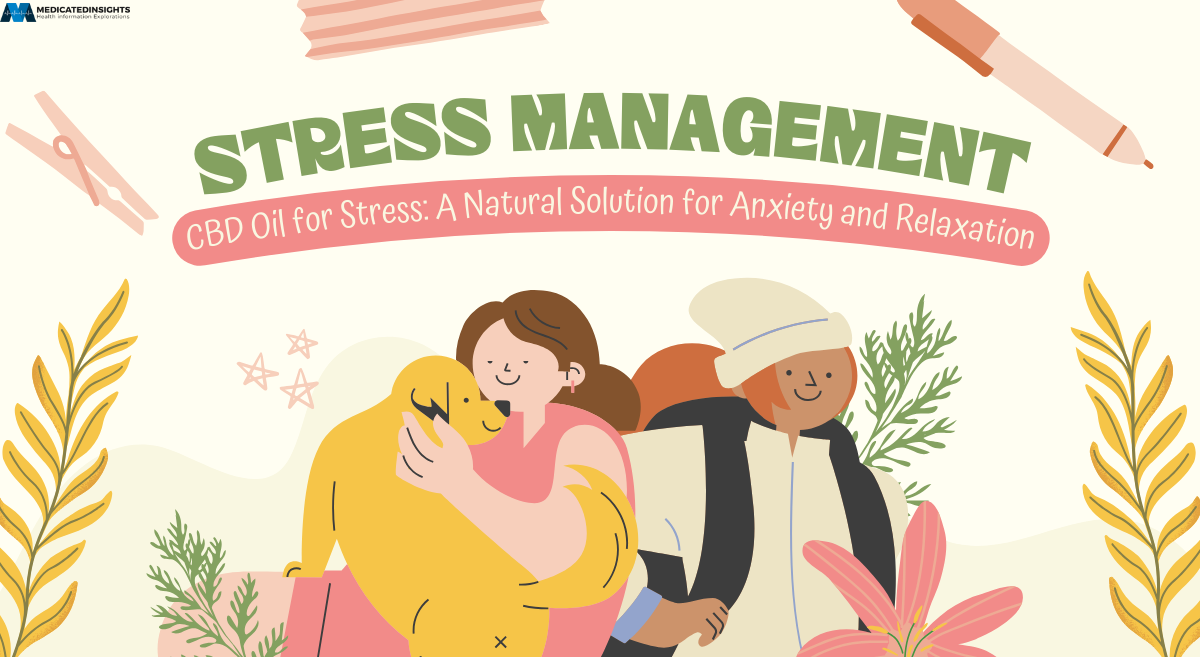Introduction
With the rising popularity of cannabis-based wellness products, two acronyms often come up: CBD and THC. While they come from the same plant family, these compounds have very different effects on the body and mind. Whether you’re looking for natural pain relief, anxiety management, or simply exploring cannabis for wellness, understanding CBD vs. THC is essential before making a choice.
This article breaks down the key differences, uses, legal status, and safety of CBD and THC—helping you decide which option is best for your health goals.
What Are CBD and THC?
CBD (cannabidiol) and THC (tetrahydrocannabinol) are both cannabinoids found in the cannabis plant. They interact with the body’s endocannabinoid system (ECS), which plays a role in mood, sleep, pain, and immune function.
CBD (Cannabidiol)
-
Non-psychoactive: Does not make you feel “high”
-
Found mostly in hemp
-
Known for calming, anti-inflammatory, and neuroprotective effects
THC (Tetrahydrocannabinol)
-
Psychoactive: Produces a euphoric “high”
-
Found in marijuana strains
-
Commonly used for pain, sleep, and appetite stimulation
CBD vs. THC: A Side-by-Side Comparison
|
Feature |
CBD |
THC |
|---|---|---|
|
Psychoactive |
No |
Yes |
|
Legal Status (US) |
Legal under 0.3% THC (Hemp) |
Varies by state |
|
Medical Uses |
Anxiety, inflammation, seizures |
Pain, insomnia, nausea |
|
Side Effects |
Mild (dry mouth, fatigue) |
May include anxiety, dizziness |
|
Drug Testing Risk |
Low to None |
High (likely to test positive) |
When to Choose CBD
CBD may be the right option if you’re looking for:
-
Relief from anxiety, stress, or sleep issues
-
A supplement to aid chronic pain or inflammation
-
A non-intoxicating alternative to THC
-
Daily support without legal or workplace risks
CBD is widely available in oils, capsules, gummies, and topicals. It’s often used during the day for calm focus or at night to aid sleep—without the mental fog or impairment.
When THC Might Be a Better Fit
THC could be helpful in certain therapeutic situations, such as:
-
Severe chronic pain (e.g., cancer, fibromyalgia)
-
Appetite loss or nausea due to chemotherapy
-
Cases where stronger relaxation or sedation is needed
However, THC is not legal in all locations and may not be suitable for everyone—especially those with anxiety disorders or a history of substance misuse.
The Entourage Effect: CBD + THC Together
Some products offer a balanced mix of CBD and THC, which may enhance their overall effectiveness. This is known as the entourage effect, where cannabinoids work synergistically to produce greater benefits.
These blends are often found in medical cannabis products and are recommended under physician guidance.
Legal Considerations in 2025
-
CBD derived from hemp (with less than 0.3% THC) is federally legal in the U.S. and many countries.
-
THC products remain restricted and are only legal in certain states or through medical cannabis programs.
-
Always check local laws before purchasing or traveling with cannabis products.
Which One Is Right for You?
Choosing between CBD and THC depends on your health goals, legal environment, lifestyle, and tolerance.
|
Goal |
Better Option |
|---|---|
|
Anxiety or stress |
CBD |
|
Pain with mental clarity |
CBD |
|
Strong pain or insomnia |
THC (where legal) |
|
Avoiding intoxication |
CBD |
|
Appetite stimulation |
THC |
When in doubt, speak with a healthcare provider or a cannabis specialist who can guide you based on your health history.
Final Thoughts
CBD and THC both offer unique benefits, but they serve different purposes. Whether you choose CBD for daily wellness or THC for more targeted relief, understanding how these cannabinoids work helps you make informed, confident choices.
As research and regulations continue to evolve, cannabis-based health solutions are becoming more personalized—and more accessible—than ever before.





